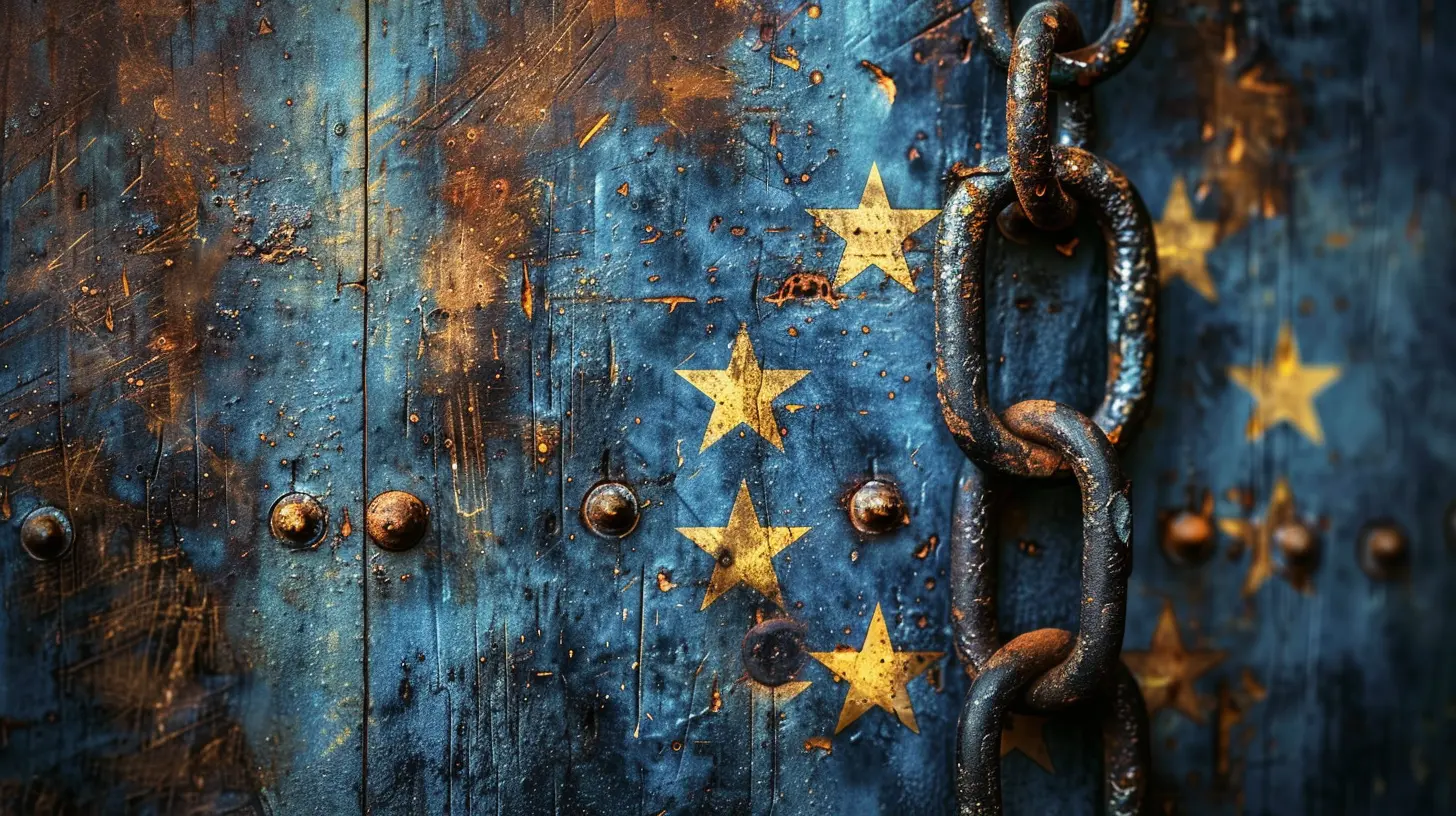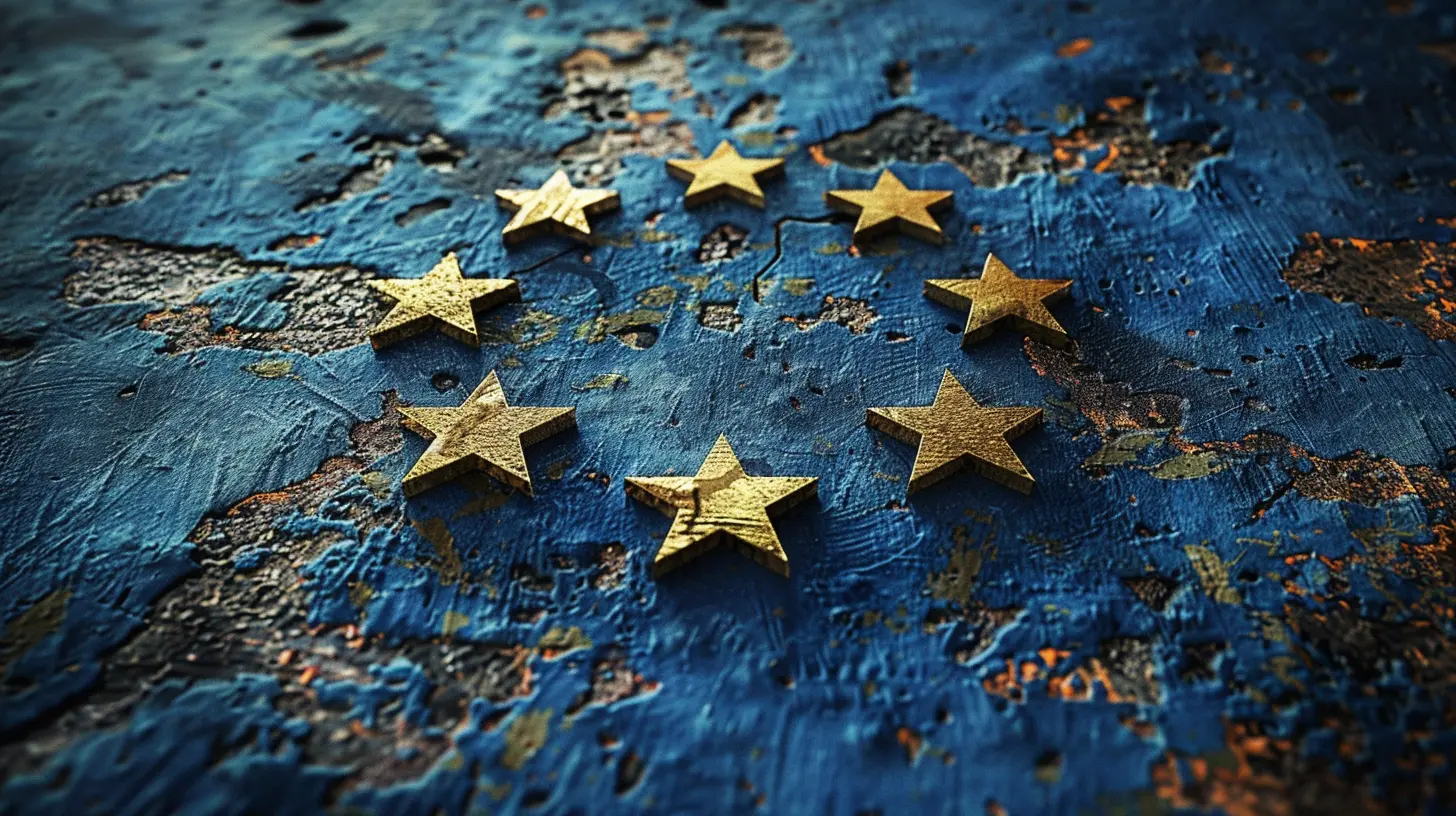GDPR: What It Means for Your Personal Data Protection
19 October 2025
Let’s be real for a second—how many of us actually read the fine print when signing up for a new app or clicking “accept” on those cookie pop-ups? (Yeah, me neither.) But behind all that legal mumbo-jumbo is something really important: your personal data. And that’s where the GDPR comes in.
So, if you're asking yourself, “What in the world is GDPR and why should I care?”, grab a cup of coffee and settle in. We're diving deep—but don't worry, I’ll keep it simple and straightforward.
What Is GDPR Anyway?
Let’s break down that intimidating acronym first. GDPR stands for General Data Protection Regulation. It’s a privacy law that came into effect on May 25, 2018, issued by the European Union (EU). But just because it’s European doesn't mean it doesn’t apply to you—especially if you use the internet (which, let’s face it, you do).At its core, GDPR is about giving people more control over their personal information and holding companies accountable for how they collect, store, and use that data.
Why Should You Care About GDPR?
Let me put it this way: your data is valuable. We're talking about your name, email address, location, browsing habits, purchase history, IP address, and even your selfies. Companies treasure this info like pirates hoard gold—because it helps them sell, target, and grow.Before GDPR, a lot of our personal data was collected without us fully understanding how or why. GDPR changes that narrative by:
- Making companies ask for permission before collecting your data.
- Requiring them to be transparent about what they’re doing with it.
- Giving you the power to say no, access it, or even have it erased.
Sounds good, right? It's like taking back control over what’s rightfully yours—your digital identity.
A Quick Look at the Rights GDPR Gives You
Let’s turn the spotlight back on you. GDPR isn’t just about what businesses should or shouldn’t do. It’s also about what you’re entitled to. Here’s a breakdown of the rights it gives to everyday people like you and me:1. The Right to Be Informed
Companies have to tell you—clearly and in plain language—what data they’re collecting, why, and how they’re going to use it.Ever notice privacy policies becoming less cryptic post-2018? Yep, that’s GDPR in action.
2. The Right of Access
You can ask a company, “Hey, what data do you have on me?” and they’re legally required to tell you. No hoops, no hassle.3. The Right to Rectification
Found an error in your data? You can ask them to fix it. Simple as that.4. The Right to Erasure (aka “The Right to Be Forgotten”)
This one's a biggie. If there’s no good reason for a company to keep your info, you can ask them to delete it—and they must comply in most cases.5. The Right to Restrict Processing
Not sure if a company should be using your data? You can ask them to stop processing it while things are being sorted out.6. The Right to Data Portability
Imagine switching banks and taking all your transaction history with you instantly. GDPR makes that possible with your data—so long as it's in a usable format.7. The Right to Object
You can say "no thanks" to your data being used for direct marketing or profiling. And boom—they have to stop.8. Rights Related to Automated Decision-Making and Profiling
This one protects you from being treated unfairly by algorithms—think credit scoring or job applications decided solely by machines. You have the right to ask for human involvement.
Who Has to Follow GDPR?
Here’s the twist: even if a company isn't based in the EU, it still has to comply if it collects or processes data from people in the EU. So whether it’s a startup in San Francisco or a mega-retailer in Tokyo, if they’re trying to reach European users, they're in the GDPR game.In short? GDPR has gone global. It’s reshaping the way the entire internet handles personal data.
What Kind of Data Does GDPR Protect?
GDPR casts a pretty wide net. It protects any personal data that can identify a person directly or indirectly. Here’s what falls under that umbrella:- Names and email addresses
- ID numbers
- Location data
- Online identifiers like IP addresses
- Financial information
- Health records
- Genetic and biometric data
- Political opinions, religious beliefs, and more
Even something as simple as a cookie stored in your browser can be considered personal data under GDPR.
How Does GDPR Affect Businesses?
Now, let’s flip the coin. What does this mean for the businesses collecting your data?Consent Is King
Businesses must get your explicit consent before collecting or using your data. No more pre-ticked boxes or vague opt-ins.Transparency Matters
They need to be clear about what data they're collecting and why. Their privacy policies must be understandable—not just legal gibberish.Accountability & Documentation
Companies must prove they’re GDPR-compliant. That means documenting processes, training staff, and being ready for audits.Massive Fines for Violations
This isn’t just a slap on the wrist. We’re talking serious money. Companies can be fined up to €20 million or 4% of global annual revenue, whichever is higher. Yikes!Real-World Examples of GDPR in Action
Let’s bring this down to earth with a few real-world cases.British Airways
Later that same year, British Airways faced a whopping €204 million fine after hackers stole personal data from 500,000 users due to poor security practices.Marriott Hotels
Same year, different company. Marriott Hotels was fined €110 million after a data breach exposed info of over 300 million guests.These aren’t tiny startups—they’re massive corporations. GDPR doesn’t play favorites.
How Can You Protect Your Data Under GDPR?
Knowing your rights is step one, but let’s take it a bit further. Here are some proactive things you can do to keep your data safe:1. Read Privacy Policies (Yes, Really)
Okay, I get it—they're boring. But now they’re supposed to be readable. Give them a skim—you might be surprised what's in there.2. Use Privacy Settings
Most apps and platforms give you options to control what data you share. Dig into those settings and customize them to your comfort level.3. Ask Questions
Not sure why a company needs certain info? Ask. You have the right to know.4. Exercise Your Rights
Want your data deleted or corrected? Reach out. GDPR empowers you to take that step.Has GDPR Made a Difference?
Absolutely. Since it came into effect, we’ve seen:- More transparency from companies
- Greater awareness from users
- Stronger security systems
- Tech giants being held accountable
Sure, it’s not perfect. Enforcement is still catching up, and not all companies comply 100%. But GDPR has raised the bar and started a global conversation about data ethics—and that’s huge.
What’s Next for Data Privacy?
GDPR was just the beginning. Inspired by it, countries around the world are rolling out their own privacy laws:- CCPA in California
- PIPEDA in Canada
- LGPD in Brazil
The message is clear: privacy is not optional anymore, it’s a right. And we, as users, are finally getting a seat at the table.
Final Thoughts: It’s About Trust
At the end of the day, GDPR isn’t just about rules and regulations. It’s about building trust in the digital world. It’s about being treated with respect online the same way we expect to be treated in real life.When you know your rights and understand what’s happening behind the screens, you feel more empowered, secure, and in control. And isn’t that what we all want?
So next time you see that cookie banner or privacy notice—take a second. Read it. Because now, you actually have a say in the matter.
all images in this post were generated using AI tools
Category:
Data PrivacyAuthor:

Pierre McCord
Discussion
rate this article
1 comments
James McCaffrey
Thank you for this insightful article on GDPR and its implications for personal data protection. Your clear explanations make complex regulations more accessible. It’s crucial for individuals and businesses alike to understand these guidelines in today’s digital landscape. Looking forward to more informative content!
October 20, 2025 at 2:35 PM

Pierre McCord
Thank you for your kind words! I'm glad you found the article helpful. Stay tuned for more insights on data protection!


